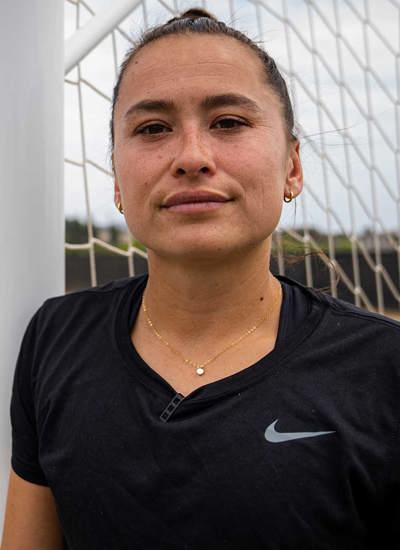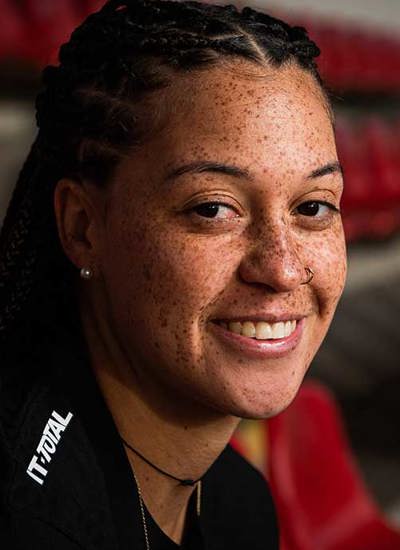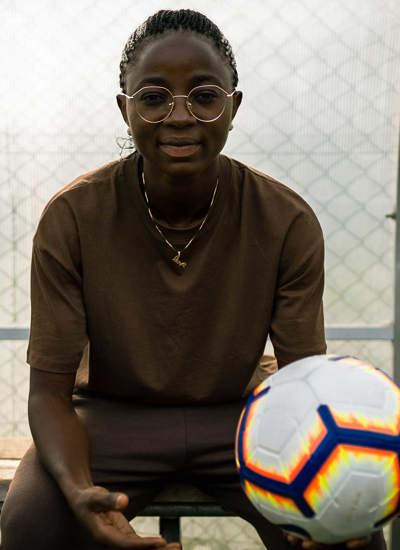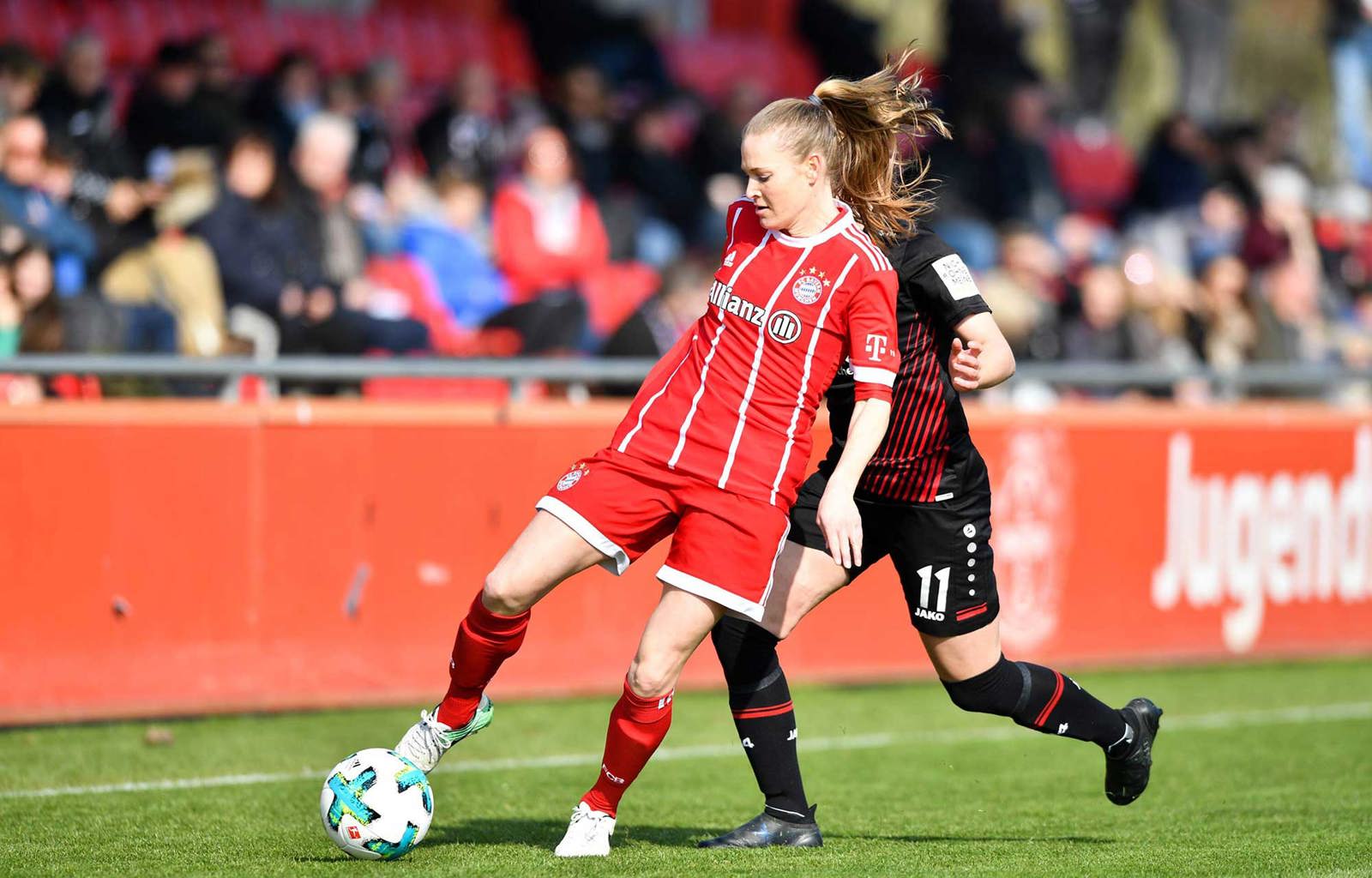

About
Claudia van den Heiligenberg
Former AZ, Ajax and Bayern Munich player Claudia van den Heiligenberg made 97 appearances for the Netherlands. She now works for Dutch player union VVCS and recently took on the role of project coordinator for Raising Our Game Europe 2025, which is financially supported by the European Union as part of its Erasmus+ programme.
I was 18 when I was invited for a trial with the Dutch national team. As I was still young and played in the second-tier I told my mum, who was a former national team player herself, that I didn’t expect too much of it. But I remained in the team for years until I got injured before the 2015 World Cup.
In 2007/08, a new Dutch top-tier for women was officially launched. As a national team player I was allowed to choose which club I wanted to join. I picked AZ, which proved to be a good choice as I won three league titles and a cup there. Later, I played for the likes of Ajax, USV Jena and Bayern Munich.
After I quit playing, I had a hard time figuring out what to do. I had never really studied. I had taken some courses, but I mostly focussed on football. I always assumed that I would be able to work everywhere, which was true if I combined it with being a player. However, after I quit, I realised that I would probably end up working behind the teller in a supermarket or in a similar job. That was not what I had in mind.
I took the time to figure out what I really wanted. I wanted to remain in football and was asked to join the VVCS. I am currently responsible for women’s football, and the first point of contact for players.
I am also involved with World Coaches, a community programme run by the Dutch football association. During the last four years, I participated in projects in countries such as Jordan, Lithuania, Morocco and South Africa. We are developing local coaches who are working with people from disadvantaged neighbourhoods and helping them cope with their challenges.
Recently, I took on another job: I became the project coordinator for Raising Our Game Europe 2025 (ROGE25).
Raising Our Game Europe 2025
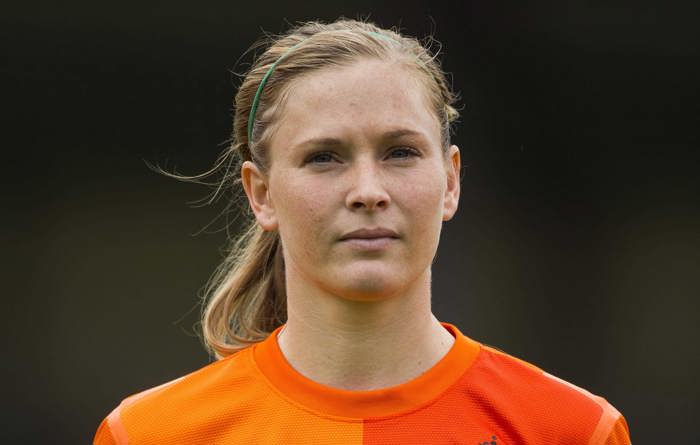
ROGE25 is designed to develop tools and resources to support player associations with promoting equal opportunities, access, and inclusion for women’s players.
The project involves seven countries who are partners: Cyprus, Denmark, France, Italy, Portugal the Netherlands and Slovenia; and five countries who are affiliated project members: England, Greece, Scotland, Spain and Sweden.
We will research the current situation in these countries to identify strengths and weaknesses in each one, and define which areas could or should be improved. We will then develop toolkits that are specific for each player association’s needs.
Our overall aim is to improve the basic rights of women’s players. As a player I experienced that you hardly have any rights, although I never fully realised how precarious my situation was. In most countries, women’s players have a second job to get by. I worked for the police, for example.
When these players get injured, they are not insured and are dependent on their real employer’s sympathy to help them.
“It’s very nice that you play football and suffer a cruciate ligament injury, but now you cannot work for me. And you want us to pay for that?”
As a player you often allow clubs to use you, because you love to play. But what do you get in return?
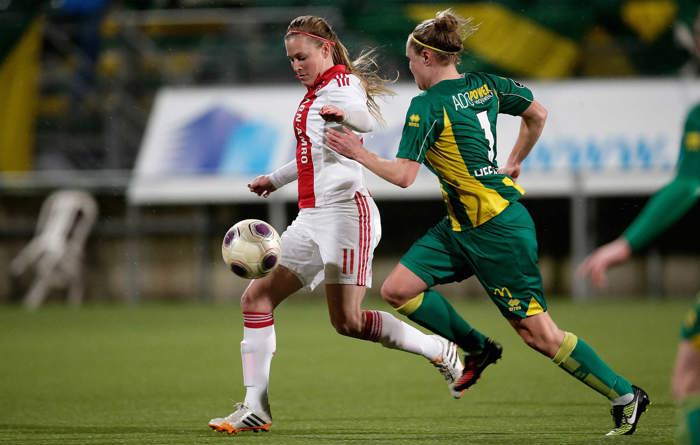
In the Netherlands, there are clubs that expect players to train, play and behave like a professional, including doing commercial activities, even though none of these players have a contract, except for the two professionals that the licensing system requires. The others get a ‘volunteers’ allowance’. That’s it.
When I started working for the VVCS, I immediately said that a collective bargaining agreement is the top priority for women’s football, to secure basic players’ rights and working conditions.
In various countries top teams are making serious progress in women’s football. However, many other clubs – even in the same countries – are falling behind as they lack the means. If you are a player of a smaller team you train and, after practice, rush off to work without enjoying sufficient rest. And then you have to play against top teams that have players who do have enough time to recover after training.
Such a situation only widens the quality gap between teams. If we manage to improve the conditions of players in the smaller teams, we will not close the gap fully – but we will make the game more equal and offer more women the opportunity to be a professional footballer.
I expect that with the ROGE25 project we can provide the unions with the necessary tools to allow women’s footballers to take an important step towards equality in football. We are delighted and thankful that the EU underlines the value of this project by providing us with a grant, and we will do everything in our power to make ROGE25 a success.
